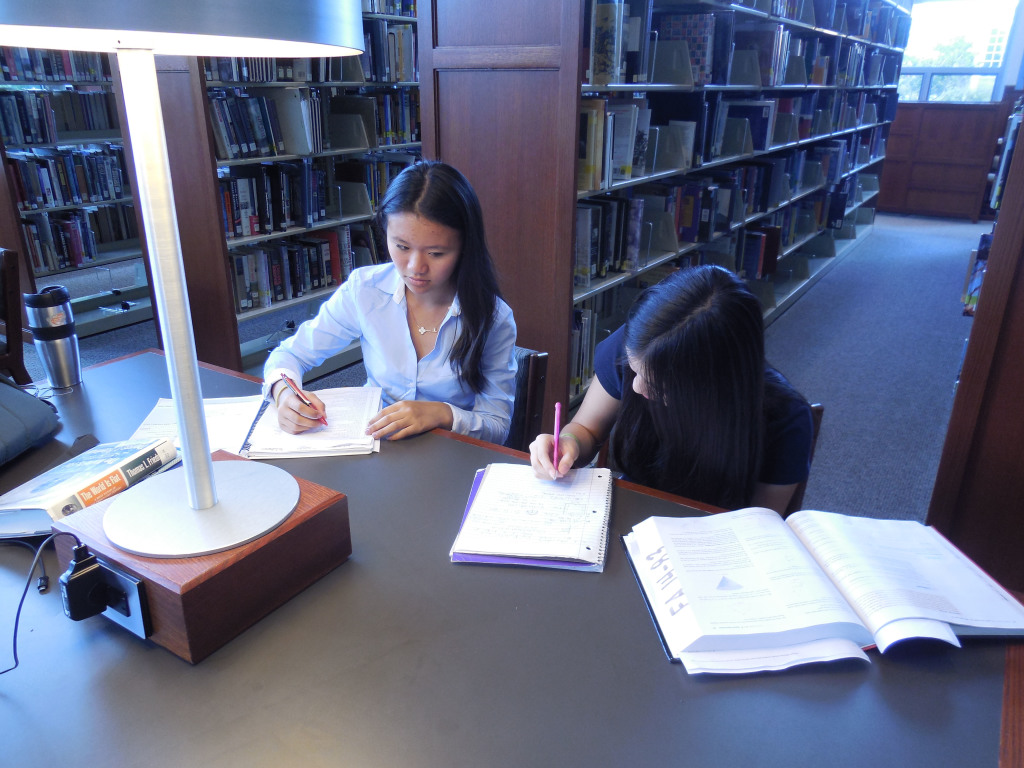Lexi Fischer ’17, Lily Giordano ’17: “On my honor, in my work I have neither given nor received unauthorized help.” For students at the
Episcopal Academy, writing this on top of papers, quizzes and tests has become second nature. Each time a student signs their name next to this statement, they make a promise. However, the true meaning of this promise sometimes differs in the minds of students and teachers. This year, many teachers, as well as Dr. Delvin Dinkins, Head of Upper School, have begun the semester by stressing the importance of maintaining academic integrity.
The struggle between receiving exceptional grades while upholding academic integrity at a school with such a heavy workload and high expectations is a challenge students face on a daily basis. Kevin O’Brien, Upper School English teacher, stated, “The question lies in the gray areas.” He continued, “Are Sparknotes available? Are Internet sources available? Are those fair game when we live in a world with electronic devices?” Addressing the issues of academic dishonesty, O’Brien wishes to take a more innovative approach to ensure the integrity of his students. “Writing is thinking out loud, I want to do more writing in class instead of tests. On tests you’re going to cheat, but you can’t cheat in writing,” he explained. Because the line between cheating and academic integrity is commonly clouded with gray areas, Dinkins offered a solution to help guide the students towards honest work.
“Give students an out: ask your teachers. It’s okay if you don’t know. It’s okay that you’re building on the ideas of other people, you just need to give them credit.”
At EA, many students are driven by success and the desire to achieve the highest grades possible. Concerning this issue, Dinkins commented, “Teachers need to make sure that students understand that everything is not about the outcome or the grade. Sometimes students feel locked in and feel that they’re behind or need the grade and will do anything to get it.”

Photo Courtesty of Stephana Lim ’17
Dinkins believes that finding a balance between students’ desires to succeed and working honestly lies partly in the hands of teachers. One of Dinkins’ goals this year is to inform the teachers of their responsibilities regarding this matter, as well as the students of theirs. “On the one hand you’re being held accountable for it, and on the other hand we want to help you. That is why on my presentation I made it clear that this is what students are responsible for, and this is what teachers are responsible for.” Dinkins also commented on the repetition of establishing the difference between academic integrity and dishonesty. “Faculty was really feeling like there was so much subtlety to academic integrity. As much as we can repeat it, we have to. Even when kids plagiarize unknowingly it’s still against the rules.”
Dinkins stressed that incorporating others work is not academic dishonesty as long as citations are provided. “Students think ‘Oh my gosh, I have to come up with the interpretation all by myself’ rather than saying ‘Let me think about my take on an existing interpretation, and let me build on that existing interpretation, and give that person credit’.” He concluded, “We need to make sure that we are not sending the message that the only thing that matters is the grade. For me, learning is what matters, and the grade will come.”